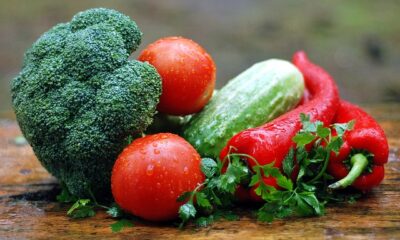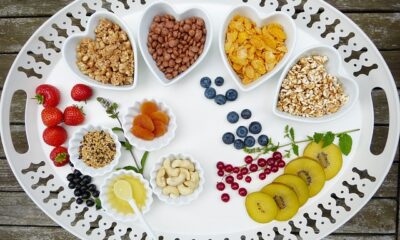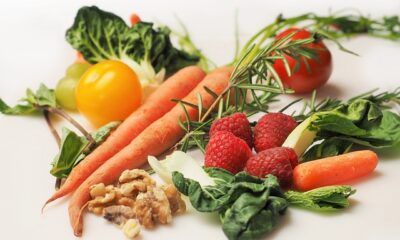Uncategorized
Unlocking Wellness: Embrace the 30 Healthiest Foods for a Journey of Renewal and Empowerment!

Introduction
In a world full of culinary temptations, finding the right balance between indulgence and nourishment can be a daunting task. However, there’s a treasure trove of wholesome foods that not only tantalize our taste buds but also fortify our bodies with essential nutrients. Join us on a journey through the 30 healthiest foods to incorporate into your daily diet for a vibrant and fulfilling life.
What Makes a Food Healthy?
Before we dive into our list, let’s understand what makes a food truly healthy. A healthy food is one that is rich in essential nutrients, low in unhealthy fats and sugars, and provides a plethora of health benefits, ranging from boosting immunity to supporting heart health and promoting overall well-being.
Leafy Greens: Nature’s Multivitamin
Leafy greens are nutritional powerhouses packed with vitamins, minerals, and antioxidants. Incorporating a variety of leafy greens into your diet can help protect against chronic diseases and promote optimal health.
Spinach
Spinach, with its vibrant green leaves, is a nutritional powerhouse. Rich in iron, calcium, and vitamins A and K, spinach supports bone health, aids in digestion, and boosts immunity.
Kale
Kale has earned its status as a superfood for good reason. Packed with vitamins C and K, as well as antioxidants like beta-carotene and quercetin, kale supports cardiovascular health, strengthens the immune system, and promotes healthy vision.
Swiss Chard
Swiss chard boasts an impressive array of nutrients, including vitamins A, C, and K, as well as magnesium and potassium. Its anti-inflammatory properties and ability to regulate blood sugar levels make it a valuable addition to any diet.
Colorful Berries Bursting with Antioxidants
Berries are not only delicious but also packed with antioxidants that help combat oxidative stress and inflammation in the body. Incorporating a variety of berries into your diet can support brain health, improve heart function, and enhance skin radiance.
Blueberries
Blueberries are renowned for their high antioxidant content, particularly flavonoids like anthocyanins. These compounds have been shown to improve cognitive function, protect against age-related memory decline, and reduce the risk of chronic diseases.
Strawberries
Strawberries are a rich source of vitamin C, manganese, and antioxidants like ellagic acid. Consuming strawberries regularly can promote heart health, regulate blood sugar levels, and support healthy skin.
Raspberries
Raspberries are packed with fiber, vitamins C and K, and antioxidants like quercetin and gallic acid. Their anti-inflammatory properties and potential cancer-fighting effects make them a valuable addition to any diet.
Nutty Delights for Heart Health
Nuts are nutrient-dense snacks that are rich in heart-healthy fats, protein, and fiber. Incorporating a handful of nuts into your daily routine can help lower cholesterol levels, reduce inflammation, and support overall cardiovascular health.
Almonds
Almonds are loaded with monounsaturated fats, antioxidants, and vitamin E. Snacking on almonds can help lower LDL cholesterol, regulate blood sugar levels, and promote weight loss.
Walnuts
Walnuts are a rich source of omega-3 fatty acids, which have been linked to reduced inflammation, improved brain function, and enhanced heart health. Adding walnuts to your diet may also help lower blood pressure and support healthy aging.
Pistachios
Pistachios are packed with protein, fiber, and antioxidants like lutein and zeaxanthin. Eating pistachios regularly can aid in weight management, improve cholesterol levels, and boost eye health.
Lean Protein Powerhouses
Protein is essential for building and repairing tissues, supporting immune function, and maintaining muscle mass. Incorporating lean sources of protein into your diet can help you feel full and satisfied while supporting overall health and well-being.
Salmon
Salmon is a nutrient-rich fish that is packed with omega-3 fatty acids, protein, and vitamin D. Consuming salmon regularly can lower the risk of heart disease, improve cognitive function, and support healthy joints.
Chicken Breast
Chicken breast is a lean source of protein that is low in fat and calories. It provides essential amino acids necessary for muscle repair and growth, making it an ideal choice for those looking to build lean muscle mass.
Tofu
Tofu, made from soybeans, is a versatile plant-based protein that is rich in calcium, iron, and magnesium. It’s an excellent meat alternative for vegetarians and vegans and can help lower cholesterol levels and reduce the risk of certain cancers.
Whole Grains for Sustained Energy
Whole grains are an excellent source of complex carbohydrates, fiber, vitamins, and minerals. Incorporating whole grains into your diet can help stabilize blood sugar levels, improve digestive health, and provide sustained energy throughout the day.
Quinoa
Quinoa is a complete protein that contains all nine essential amino acids, making it an excellent choice for vegetarians and vegans. It’s also rich in fiber, iron, and magnesium, supporting heart health and aiding in weight management.
Brown Rice
Brown rice is a whole grain that is rich in fiber, vitamins, and minerals. It’s an excellent source of energy, supports digestive health, and may reduce the risk of developing type 2 diabetes and heart disease.
Oats
Oats are a nutrient-dense grain that is rich in soluble fiber, protein, and antioxidants. Eating oats regularly can help lower cholesterol levels, stabilize blood sugar levels, and promote feelings of fullness and satiety.
Healthy Fats: Nourishment for Body and Brain
Healthy fats are essential for brain health, hormone production, and the absorption of fat-soluble vitamins. Incorporating sources of healthy fats into your diet can support cognitive function, improve mood, and reduce the risk of chronic diseases.
Avocado
Avocado is a nutrient-dense fruit that is rich in monounsaturated fats, fiber, and vitamins E and K. It’s known for its heart-healthy properties, promoting satiety, and supporting skin and eye health.
Olive Oil
Olive oil is a staple of the Mediterranean diet and is renowned for its health benefits. Rich in monounsaturated fats and antioxidants, olive oil can help lower LDL cholesterol, reduce inflammation, and protect against heart disease.
Flaxseeds
Flaxseeds are a rich source of omega-3 fatty acids, fiber, and lignans. Adding flaxseeds to your diet can improve digestive health, lower cholesterol levels, and reduce the risk of certain cancers.
Greek Yogurt: Probiotic Perfection
Greek yogurt is a creamy and delicious source of probiotics, which are beneficial bacteria that support digestive health and immune function. Incorporating Greek yogurt into your diet can help maintain a healthy gut microbiome and reduce the risk of gastrointestinal disorders.
Cruciferous Vegetables: Cancer Fighters
Cruciferous vegetables are a family of vegetables that are rich in sulfur-containing compounds known as glucosinolates. These compounds have been shown to have anti-cancer properties and may help reduce the risk of certain types of cancer.
Broccoli
Broccoli is a nutritional powerhouse that is rich in vitamins C and K, fiber, and antioxidants like sulforaphane. Consuming broccoli regularly can support detoxification, reduce inflammation, and promote heart health.
Cauliflower
Cauliflower is a versatile cruciferous vegetable that is low in calories but high in nutrients. It’s a rich source of vitamins C and K, as well as antioxidants like glucosinolates, which have been linked to cancer prevention and detoxification.
Brussels Sprouts
Brussels sprouts are packed with fiber, vitamins C and K, and antioxidants like kaempferol. Their anti-inflammatory properties and ability to support detoxification make them a valuable addition to any diet.
Citrus Fruits: Vitamin C Boosters
Citrus fruits are not only delicious but also packed with vitamin C, a powerful antioxidant that supports immune function, collagen production, and wound healing. Incorporating citrus fruits into your diet can help ward off colds and flu and promote overall health and well-being.
Oranges
Oranges are a rich source of vitamin C, fiber, and antioxidants like flavonoids and beta-carotene. Eating oranges regularly can support immune function, reduce inflammation, and protect against chronic diseases.
Grapefruits
Grapefruits are low in calories but high in nutrients like vitamin C, fiber, and antioxidants. They have been shown to aid in weight loss, lower cholesterol levels, and reduce the risk of kidney stones.
Lemons
Lemons are a versatile citrus fruit that is rich in vitamin C, antioxidants, and citric acid. Adding lemon to your water or meals can aid in digestion, detoxification, and skin health.
Legumes for Plant-Based Protein
Legumes are a nutritious and versatile source of plant-based protein, fiber, vitamins, and minerals. Incorporating legumes into your diet can help lower cholesterol levels, regulate blood sugar levels, and support overall health and well-being.
Lentils
Lentils are a nutritional powerhouse that is rich in protein, fiber, and essential nutrients like iron and folate. They’re easy to prepare and can be used in a variety of dishes, making them a convenient and nutritious addition to any diet.
Chickpeas
Chickpeas, also known as garbanzo beans, are loaded with protein, fiber, and vitamins and minerals like folate and manganese. They’re a staple in Mediterranean and Middle Eastern cuisines and can be used in salads, soups, and stews.
Black Beans
Black beans are a rich source of protein, fiber, and antioxidants like anthocyanins. Consuming black beans regularly can help lower cholesterol levels, regulate blood sugar levels, and support digestive health.
Colorful Bell Peppers: Rich in Vitamins
Bell peppers are not only colorful and flavorful but also packed with vitamins and antioxidants. Incorporating a variety of bell peppers into your diet can help boost immunity, support eye health, and reduce the risk of chronic diseases.
Red Bell Peppers
Red bell peppers are the ripest and sweetest of the bell pepper varieties. They’re rich in vitamin C, vitamin A, and antioxidants like beta-carotene, making them a valuable addition to any diet.
Yellow Bell Peppers
Yellow bell peppers are milder in flavor but still packed with nutrients like vitamin C, vitamin A, and antioxidants. They add a pop of color and flavor to salads, stir-fries, and wraps.
Green Bell Peppers
Green bell peppers are the most common variety and are slightly bitter in flavor. They’re rich in vitamin C, vitamin K, and antioxidants, making them a versatile and nutritious addition to any meal.
Sweet Potatoes: Nutrient-Dense Powerhouses
Sweet potatoes are a delicious and nutritious root vegetable that is rich in vitamins, minerals, and antioxidants. Incorporating sweet potatoes into your diet can help regulate blood sugar levels, support digestive health, and boost immunity.
Tomatoes: Packed with Lycopene
Tomatoes are not only a versatile ingredient but also packed with lycopene, a powerful antioxidant that gives them their vibrant red color. Consuming tomatoes regularly can help reduce the risk of certain cancers, support heart health, and promote healthy skin.
Conclusion
Incorporating the 30 healthiest foods into your daily diet can have a profound impact on your overall health and well-being. From leafy greens and colorful berries to lean protein and healthy fats, these nutrient-dense foods provide the building blocks your body needs to thrive. So why wait? Start nourishing your body from the inside out with these delicious and nutritious foods today.
FAQs
1. Can I eat these foods every day?
Absolutely! Incorporating these foods into your daily diet can provide a wide range of health benefits and support overall well-being.
2. Are these foods expensive?
While some of these foods may be more expensive than others, there are plenty of budget-friendly options available. Look for sales, buy in bulk, and prioritize seasonal produce to make healthy eating more affordable.
3. Can I still enjoy my favorite treats while eating these foods?
Of course! It’s all about balance. While it’s important to prioritize nutrient-dense foods, there’s still room for indulgence in moderation.
4. Are these foods suitable for vegetarians and vegans?
Yes, many of these foods are plant-based and suitable for vegetarians and vegans. They provide a rich source of nutrients without the need for animal products.
5. How can I incorporate these foods into my diet if I’m a picky eater?
Experiment with different cooking methods, seasonings, and recipes to find ways to enjoy these foods that appeal to your taste preferences. Don’t be afraid to get creative in the kitchen!
-
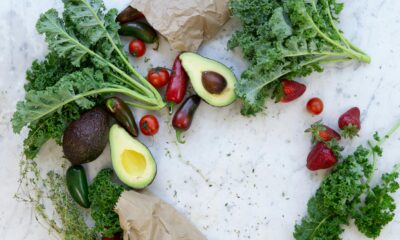
 Uncategorized2 months ago
Uncategorized2 months ago15 Deceptive Myths About Nutritious Eating We’ve Embraced for Generations
-
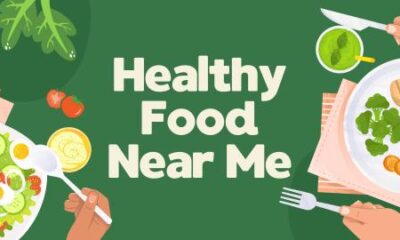
 Uncategorized2 months ago
Uncategorized2 months agoNavigating the Pursuit of Wellness: Unveiling the Domain of Healthy Food Near Me
-
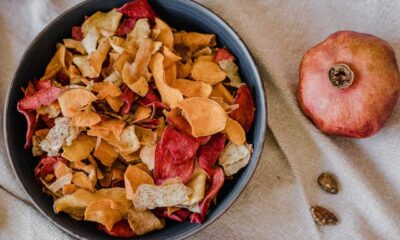
 Snacks and Appetizers6 months ago
Snacks and Appetizers6 months agoCrunchy crisps from the oven: the perfect snack without the shame
-

 Lunch and Dinner Recipes6 months ago
Lunch and Dinner Recipes6 months agoSeafood sensation: delicious and nutritious fish recipes for a healthy dinner
-

 Breakfast Recipes6 months ago
Breakfast Recipes6 months agoHomemade power bar: the excellent grab-and-go breakfast option for an active early morning
-

 Lunch and Dinner Recipes6 months ago
Lunch and Dinner Recipes6 months agoVegetarian Stir-Fry: A Burst Of Health And Flavor In Every Bite
-

 Snacks and Appetizers6 months ago
Snacks and Appetizers6 months agoDeliciously hot Guacamole and salsa recipes to enhance the great experience
-

 Breakfast Recipes6 months ago
Breakfast Recipes6 months agoProtein-Packed Pancakes: A Delicious Method To Start Your Day






